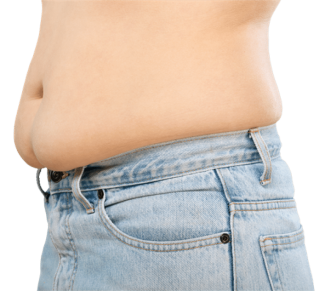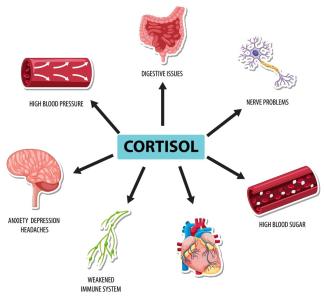
Getting rid of belly fat through sleep is a multifaceted process that involves several aspects of your lifestyle and overall health. While sleep alone won't magically melt away belly fat, it plays a crucial role in regulating hormones and metabolism, which can affect your ability to lose weight, including belly fat. Here are several ways in which you can use sleep as a tool to help reduce belly fat:
- Prioritize Sleep:
- Aim for 7-9 hours of quality sleep per night. This amount of sleep is recommended for most adults to support overall health and well-being.
- Maintain a Consistent Sleep Schedule:
- Go to bed and wake up at the same time every day, even on weekends. This helps regulate your body's internal clock and improve sleep quality.
- Create a Comfortable Sleep Environment:
- Ensure your bedroom is dark, quiet, and cool. Invest in a comfortable mattress and pillows to promote better sleep.
- Avoid Stimulants and Electronics Before Bed:
- Limit caffeine intake in the afternoon and evening, and avoid electronic screens (phones, computers, TVs) at least an hour before bedtime. The blue light emitted from screens can interfere with your sleep-wake cycle.
- Manage Stress:
- Chronic stress can lead to weight gain, including belly fat. Practice stress-reduction techniques such as meditation, deep breathing, or yoga to help you relax and sleep better.
- Limit Late-Night Eating:
- Avoid heavy or spicy meals close to bedtime, as they can disrupt your sleep. If you're hungry, opt for a light, healthy snack.
- Monitor Your Alcohol Intake:
- Alcohol can interfere with the quality of your sleep. Limit or avoid alcohol consumption, especially close to bedtime.
- Exercise Regularly:
- Regular physical activity, such as aerobic and strength training exercises, can help reduce overall body fat, including belly fat. Try to finish your workout at least a few hours before bedtime to avoid disrupting sleep.
- Watch Your Diet:
- Consume a balanced diet that includes plenty of fruits, vegetables, lean proteins, and whole grains. Limit the intake of sugary and processed foods, as they can contribute to weight gain.
- Stay Hydrated:
- Dehydration can lead to poor sleep quality. Drink enough water throughout the day but avoid excessive consumption right before bedtime to reduce nighttime awakenings.
- Get Sunlight Exposure:
- Exposure to natural light during the day can help regulate your circadian rhythm and improve sleep quality. Spend time outdoors or open your curtains to let in natural light in the morning.
- Consider Seeking Professional Help:
- If you have sleep disorders such as sleep apnea, it's important to seek medical treatment. Sleep apnea can lead to weight gain, especially around the abdominal area.
Remember that spot reduction (losing fat from a specific area, such as the belly) is not a realistic goal. Instead, focus on overall fat loss through a combination of a healthy diet, regular exercise, and quality sleep. When you consistently prioritize sleep and maintain a healthy lifestyle, you'll be better equipped to reduce belly fat over time. Patience and consistency are key to achieving lasting results.






